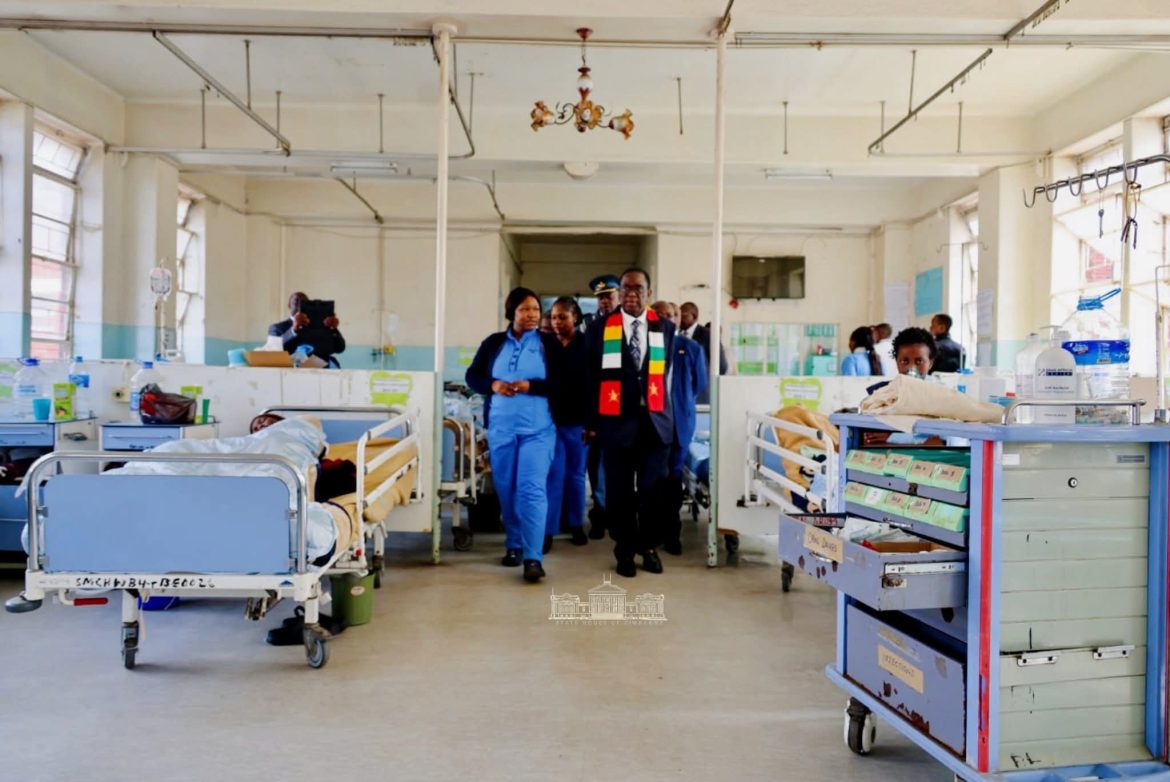Zimbabwe has completed its second Joint External Evaluation (JEE) of national health security, a major step in the country’s effort to strengthen its ability to detect, prevent and respond to health emergencies such as disease outbreaks. The assessment was conducted between 29th June and 4th July 2025 and sets the pace for a World Health Organisation (WHO)-led validation mission scheduled to take place in September.
The JEE, which is coordinated globally by the WHO, is a voluntary process where countries assess how prepared they are to handle public health threats. It is done every five years and involves reviewing systems in place to respond to health emergencies. Zimbabwe’s first JEE was carried out in 2018.
This second JEE was led by the Ministry of Health and Child Care with the support of WHO and several local and international partners. The evaluation brought together over 100 experts from different sectors including health, environment, veterinary services, civil society, defence, and donor organisations.
Speaking on behalf of the Ministry of Health, the acting Chief Director for Public Health, Dr Wenceslaus Nyamayaro, expressed gratitude to the partners who made the evaluation possible. He described the process as an important chance for Zimbabwe to measure its readiness and identify areas where improvements are needed.
According to Dr Nyamayaro, “The JEE gives us a structured opportunity to check how ready we are to detect and respond to public health threats and we thank all the partners who have made this possible.”
During the one-week evaluation, the teams assessed 19 key technical areas including disease surveillance, laboratory services, emergency response, biosafety, food safety, antimicrobial resistance, legislation, risk communication, and readiness at border entry points.
The assessment highlighted some progress since the 2018 evaluation but also uncovered several challenges. One major issue identified is the outdated legal framework guiding public health emergencies. Officials noted that many laws need urgent updating, and legal support is still weak, especially at the local government levels.
Another concern is the low level of gender representation in emergency response teams. The report pointed out that women are still underrepresented in decision-making positions, and that funding for gender-based violence (GBV) prevention remains insufficient.
In terms of disease surveillance, Zimbabwe was found to have fragmented systems when it comes to food-borne illnesses and infections acquired in hospitals. The country also faces limitations in biosafety infrastructure and laboratory capacity, both of which are vital in identifying dangerous pathogens early.
There are also gaps in the ability to detect and respond to threats at points of entry such as airports and land borders. These weaknesses increase the risk of infectious diseases crossing into or out of the country unnoticed.
One area that received detailed attention during the JEE was Zimbabwe’s progress on antimicrobial resistance (AMR). The country has already established a One Health AMR Action Plan and set up 14 surveillance sites. However, challenges remain in properly integrating data across human, animal, and environmental health sectors. There are also difficulties in containing drug-resistant infections, which pose a growing threat globally.
The next phase of the JEE will be an external validation mission by WHO experts from 6th to 13th September 2025. These experts will review Zimbabwe’s documentation and conduct site visits to health facilities, laboratories, and other relevant institutions.
Findings from the evaluation and the validation mission will guide the development of Zimbabwe’s updated National Action Plan for Health Security. This plan will be central to shaping policies, strengthening systems, and improving the country’s preparedness and response strategies.
Health experts say the JEE is not just about pointing out weaknesses but also helping countries build stronger and more resilient public health systems. It ensures Zimbabwe remains accountable and committed to meeting international standards under the International Health Regulations (2005), a global agreement to prevent and respond to public health risks.
As Zimbabwe looks forward to the WHO validation in September, government officials say they remain committed to improving health security and protecting citizens from current and future health threats.
